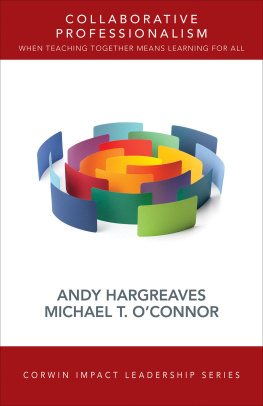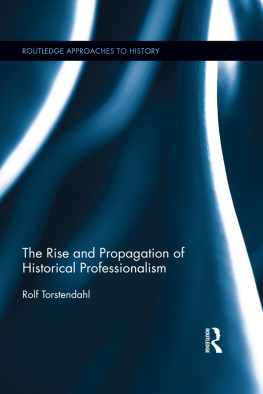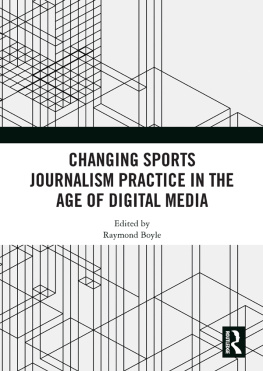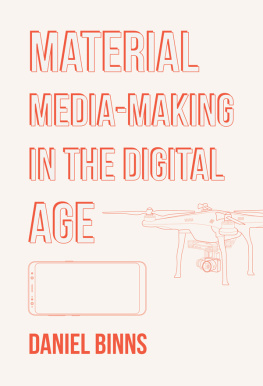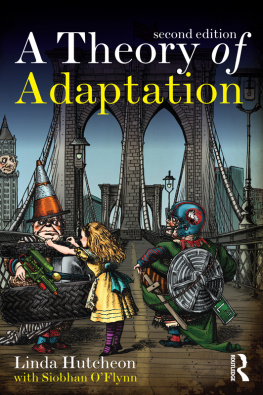Media Professionalism and TrainingKey Concerns in Media Studies
Series Editor: Andrew Crisell
Within the context of todays global, digital environment, Key Concerns in Media Studies addresses themes and concepts that are integral to the study of media. Concisely written by leading academics, the books consider the historical development of these themes and the theories that underpin them and assess their overall significance, using up-to-date examples and case studies throughout. By giving a clear overview of each topic, the series provides an ideal starting point for all students of modern media.
Published
Paul BowmanCulture and the Media
Andrew CrisellLiveness and Recording in the Media
Tim DwyerLegal and Ethical Issues in the Media
Gerard GogginNew Technologies and the Media
Shaun MooresMedia, Place and Mobility
Forthcoming
Bob FranklinPolitics, News and the Media
Gerard Goggin and Kathleen EllisDisability and the Media
David HendyPublic Service Broadcasting
Niall Richardson and Sadie WearingGender and the Media
Media Professionalism and Training
Sarah Niblock
School of Arts, Brunel University, UK
Sarah Niblock 2013
All rights reserved. No reproduction, copy or transmission of this publication may be made without written permission.
No portion of this publication may be reproduced, copied or transmitted save with written permission or in accordance with the provisions of the Copyright, Designs and Patents Act 1988, or under the terms of any licence permitting limited copying issued by the Copyright Licensing Agency, Saffron House, 610 Kirby Street, London EC1N 8TS.
Any person who does any unauthorized act in relation to this publication may be liable to criminal prosecution and civil claims for damages.
The author has asserted her right to be identified as the author of this work in accordance with the Copyright, Designs and Patents Act 1988.
First published 2013 by
PALGRAVE MACMILLAN
Palgrave Macmillan in the UK is an imprint of Macmillan Publishers Limited, registered in England, company number 785998, of Houndmills, Basingstoke, Hampshire RG21 6XS.
Palgrave Macmillan in the US is a division of St Martins Press LLC, 175 Fifth Avenue, New York, NY 10010.
Palgrave Macmillan is the global academic imprint of the above companies and has companies and representatives throughout the world.
Palgrave and Macmillan are registered trademarks in the United States, the United Kingdom, Europe and other countries.
ISBN 9780230292826
This book is printed on paper suitable for recycling and made from fully managed and sustained forest sources. Logging, pulping and manufacturing processes are expected to conform to the environmental regulations of the country of origin.
A catalogue record for this book is available from the British Library.
A catalog record for this book is available from the Library of Congress.
Preface
In an age when anyone with a broadband connection and a mobile phone can call themselves a media practitioner, uploading content to the Internet without a modicum of training or experience, the question of professionalism has never been more acute. In 2005, the chair of the National Union of Journalists professional training committee Chris Wheal described journalism as an unregulated job title that is open to charlatans, miscreants and the literary equivalent of snake-oil salesmen. It is no wonder our work is held in such low public esteem (Wheal, 2005). Now anyone and everyone can be a reporter, commentator, editor or video maker, whether or not they get paid for it. Or can they?
When I started writing this book, the mainstream media the so-called Fourth Estate were and still are engulfed by a torrent of criticism, analysis and reorganization, mired in doubt and controversy over standards, ethics and practices. News International and, a few months later, the BBC became embroiled in criticism about a lack of journalistic standards over, respectively, the hacking of mobile-phone messages and the decision to drop a Newsnight investigation into alleged sexual abuse by former BBC presenter Jimmy Savile. Now the Leveson Report has been published, and media owners are debating its implications, some claim its tenets have had a chilling effect already on reporting, even before a new press regulatory body is agreed and formed.
Against this backdrop of editorial trepidation, countless long-standing media brands are closing or recalibrating to counter the effects of advertising revenue downturns and poor outcomes for corporate shareholders. Given the vast numbers of people employed in the journalism industry globally, and the many tens of thousands wanting to break in to the media every year, it is urgent that we re-evaluate the role of the media professional and the routes by which new entrants achieve this position.
This book, based on extensive interviews and research at some of the most famous editorial brands, offers timely insights into what skills and qualities new entrants really need if they are to succeed in this new digital, global media landscape. The most dazzling proficiency with online technology means little without the mindset to put those skills into ethical, journalistic use. Advanced academic and vocational qualifications are also not necessarily a predictor of a persons aptitude in the newsroom. The journalists of tomorrow need to be clever, canny operators to achieve success and the opportunities are there for the best.
So what has changed and why is the book necessary? In a nutshell, new media technology is only in its earliest infancy yet it has already wrought significant changes in the relationship between journalists and their audiences. Some observers have called this the age of the media produser as the producers and users of media messages merge into one. The old top-down models of communication, where the elite editors told the rest of us what they thought we should know, are redundant. The journalists of today and tomorrow need a far more nuanced understanding of communication techniques and audience psychology even before they get onto the fundamentals of writing and reporting. So these are different times and we are only at the beginning of the journey. Whether you see this new Fifth Estate of digitally active citizens as a threat or an opportunity, one thing is certain: the media world is crying out for leaders to take it forward. In the current climate of uncertainty, skills are become less important than mindset and leadership, and that is what this book aims to impart.
To put this transformation into some context, let us start by briefly clarifying the distinctions between the Fourth and Fifth Estates. The Fourth Estate generally refers to photographers, journalists, television broadcasters and radio announcers, among others. Statesman and philosopher Edmund Burke is believed to have coined the term in 1787 when the House of Commons first opened up to press reporting. Many people generally agree that the Fourth Estate has immense political and social power, thanks to the fact that the Press can be used to shape societies while imparting news of note and commentary of interest. Because the Fourth Estate is recognized as such an important body, many nations have laws which protect the rights of the Press, ensuring that citizens have access to reporting on matters of interest and of note. The origins of the terms are best explained within the context of the medieval estates of the realm. In medieval society, three estates were formally recognized: the clergy, the nobility and the commoners. Each estate had a very distinct social role and a certain level of power, and the idea of the estates of the realm became so entrenched in European society that it still lives on, to some extent, although society is far more egalitarian today.




